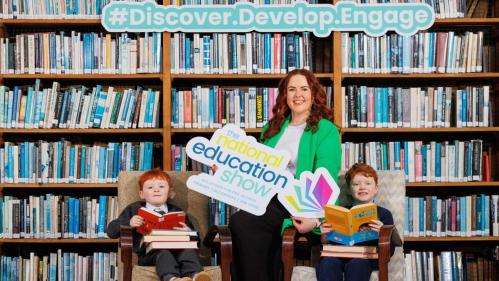
So, what is working memory? Imagine trying to remember someone's phone number. You might see the numbers written down. In this case, your brain receives visual information. Or you might hear it, in which case it receives verbal/acoustic information. You need somewhere to store that information temporarily, while you transfer the phone number to your long-term memory. Your working memory is the name for that temporary store (that's why it's also known as short-term memory).
Working memory is very important for language learning. Many children with speech, language and communication difficulties also have difficulties with working memory. They often have particular difficulties with verbal information. For example, imagine a child in the classroom learning about dinosaurs. The class is learning some new vocabulary, and the teacher is teaching about carnivores and herbivores. The child has never heard these words before. In order for her to remember how the word sounds, she must be able to hold the sequence of sounds 'h er b i v ore' in her working memory for long enough for it be transferred to her long-term memory store. If she has difficulties with working memory, she may not remember the whole word. This will make it difficult for her to say, spell, or write down the word in the future. In order for her to remember that a herbivore is 'an animal that eats plants', then once again she will have to hold that knowledge in her working memory for long enough for it to be transferred. If she has working memory difficulties, some of this information might be lost. Next time she is asked about herbivores, she might remember that it's something about dinosaurs, or something about what animals eat, but she struggles to remember the details.

Children who have memory difficulties often find it hard to pay attention in the classroom. Imagine how hard it is for this child to listen to a teacher talking for five whole minutes at a time! If you know or work with a child who you think has memory difficulties, here are some ways you can help.
- Use visuals. Write things down as you go.
- Chunk information into very short pieces. Don't expect the child to remember more than one instruction at a time. For example, instead of saying 'get a whiteboard and pen, and write your name at the top', you might say 'get a whiteboard [wait]. Now get a pen [wait]. Now write your name at the top.'
- Repeat yourself.
- Help the child to use strategies that will help them to remember - for example, rehearsing information by repeating it, or writing things down.
- Make sure the child is sitting close to you so that it is easier for them to hear you.
It can be frustrating when children don't remember what we've said, but before we tell them off for 'not listening', it's worth trying out out some of these strategies. I hope they help!





